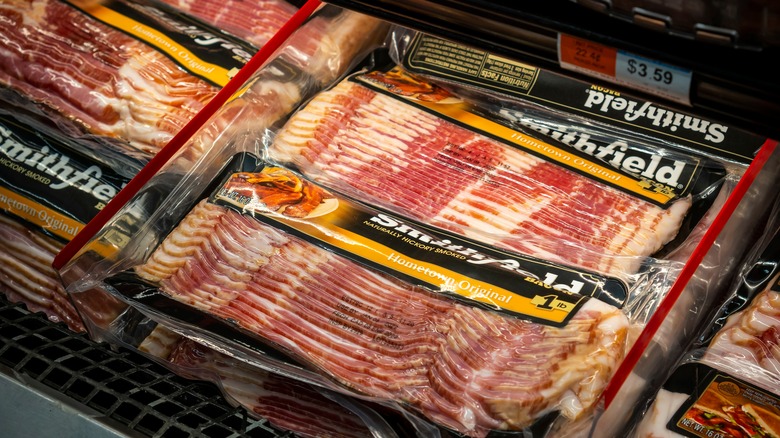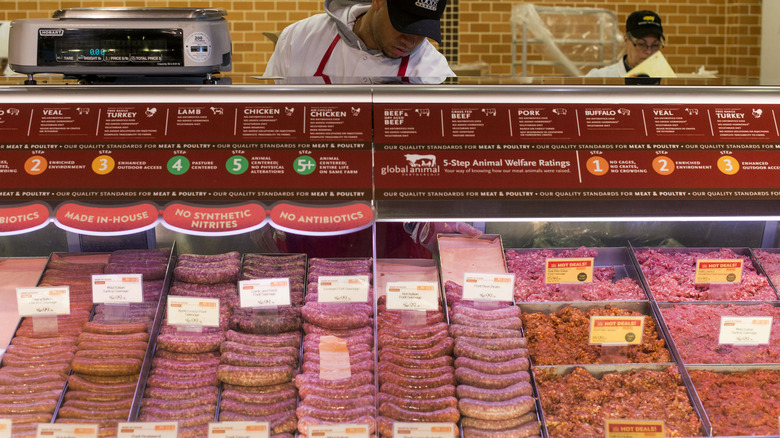The Massive Pork Price Fixing Settlement Smithfield Foods Will Pay
Never has the act of "bringing home the bacon" been as challenging, and that's all thanks to an eye-watering increase in pork prices. Statista notes that while bacon prices generally have a tendency to fluctuate, most of us have seen the price of bacon surge — by 23.7% percent between 2020 to 2021 alone. From a pricing perspective, bacon retailed for $7.21 per pound in 2021; $5.83 in 2020; it cost $5.1 in 2016; and when the Great Recession of 2009 hit, it cost $3.57.
And while a high consumer appetite might be to blame for some of that increase — National Hog Farmer reported seeing "a strong demand for bacon." The publication also noted that pork prices were way ahead of inflation, so while inflation was running at 8.5%, pork prices have risen by 16.1%. What gives?
The answer to this question could lie in a settlement reached by Smithfield Foods, one of America's meat processors, which has agreed to pay restaurants and caterers a total of $42 million, per The Associated Press. Smithfield, along with Hormel, Tyson Foods, Seaboard Foods, Triumph Foods, and a company called the Agri Stats database company, have all been accused of working together to keep pork prices high since 2009 to this year through price fixing. While Smithfield has settled, the others have yet to do the same.
Pork producers are accused of anticompetitive behavior
The Federal Trade Commission defines price fixing as an explicit or tacit agreement reached between competitors which sets the prices of goods without letting market forces dictate how much items should cost. The FTC says when a consumer buys something, it is with the expectation that the price has been set according to the laws of supply and demand, since when competitors reach agreements with regard to pricing, items generally become more expensive as a result.
The FTC doesn't take price fixing lightly; it can levy fines of up to $100 million if companies are found guilty. In the case of Smithfield and its fellow pork producers, private information contained in certain reports "helped them control the supply and price of pork," per The Associated Press.
This is not the first time Smithfield has chosen to settle out of court. It's already done the same with another group of pork buyers for $83 million; while JBS said it would also settle with restaurants and caterers by paying $12.75 million. JBS also got out of a similar lawsuit involving beef for $52.5 million earlier this year. But while JBS and Smithfield are paying penalties, neither admit to doing anything wrong, and they continue to insist that pork prices are trending upward as a result of supply and demand. Whether their customers ultimately believe that claim has yet to be seen.

